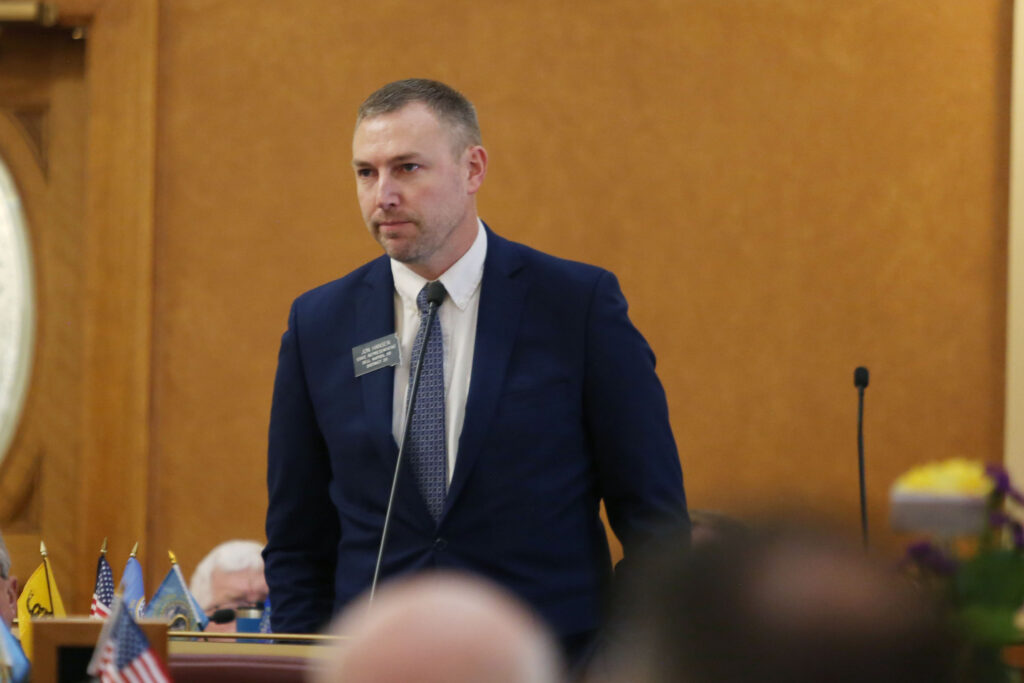
Rep. Jon Hansen, R-Dell Rapids, speaks on the South Dakota House floor on March 5, 2024. Hansen was the sponsor of a 2025 law that would shorten the time for circulating ballot question petitions, but a judge ruled the law unconstitutional. (Makenzie Huber/South Dakota Searchlight)
The state of South Dakota cannot enforce a new law that would shorten the window for circulating ballot question petitions by three months, a federal judge has ruled.
U.S. District Judge Camela Theeler filed a written order Friday that says the law is a violation of First Amendment rights. As a limitation on political speech, she wrote, moving the election-year deadline from May to February “arguably goes beyond merely inconvenient and enters the realm of severe.”
The filing deadline dictates the amount of time petitioners have to gather the required number of signatures to put a statewide question on the ballot. Petitioners need 17,508 signatures from registered voters to propose a law, or to put a bill passed by legislators on hold so voters can consider it, which is known as a referendum. The number of signatures required to put a state constitutional amendment on the ballot is 35,017.
Governor candidate grilled on witness stand in lawsuit against shorter petition window
A ballot question committee that has worked on numerous campaigns, Dakotans for Health, filed the lawsuit in April after the Legislature and Republican Gov. Larry Rhoden approved the shorter deadline in March. Dakotans for Health’s leader, Rick Weiland, praised the judge’s decision Tuesday in a news release.
“Once again, our state’s Republican supermajority tried to rig the rules to keep everyday South Dakotans from having a voice in their own government,” Weiland said. “And once again, a court sent them packing.”
The law shortening the deadline started as legislation from state House Speaker Jon Hansen, R-Dell Rapids, who is one of several candidates for governor next year. Neither he nor the state Attorney General’s Office — which defended the state in the litigation — immediately responded Tuesday to messages from South Dakota Searchlight. If the state chooses to appeal the ruling, its deadline to file an appeal is Sept. 29.
The legal battle is part of a broader struggle between ballot petitioners and Republican legislators over citizen lawmaking. During this year’s legislative session, for example, Hansen also prime-sponsored a successful bill adding justifications for the secretary of state to reject petition signatures. He cosponsored a bill vetoed by the governor that would have required constitutional amendment petitions to have signatures from registered voters in each of the 35 state Senate districts. Existing law allows signatures to come from registered voters anywhere in the state.
Those and other Republican-led efforts to restrict citizen ballot questions in South Dakota have come in response to the passage of ballot measures that many Republican lawmakers opposed. Examples have included ballot questions that raised the minimum wage, expanded Medicaid eligibility and legalized medical marijuana.
Election 2026
News and commentary on statewide races and ballot questions. Read the latest >

